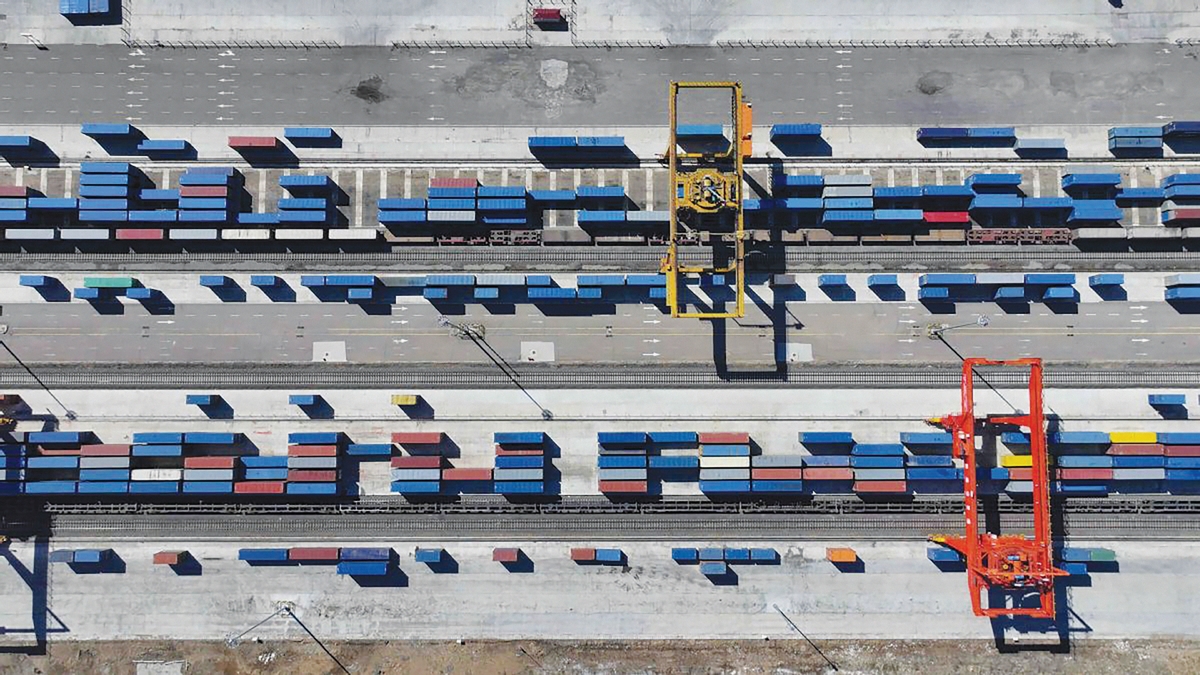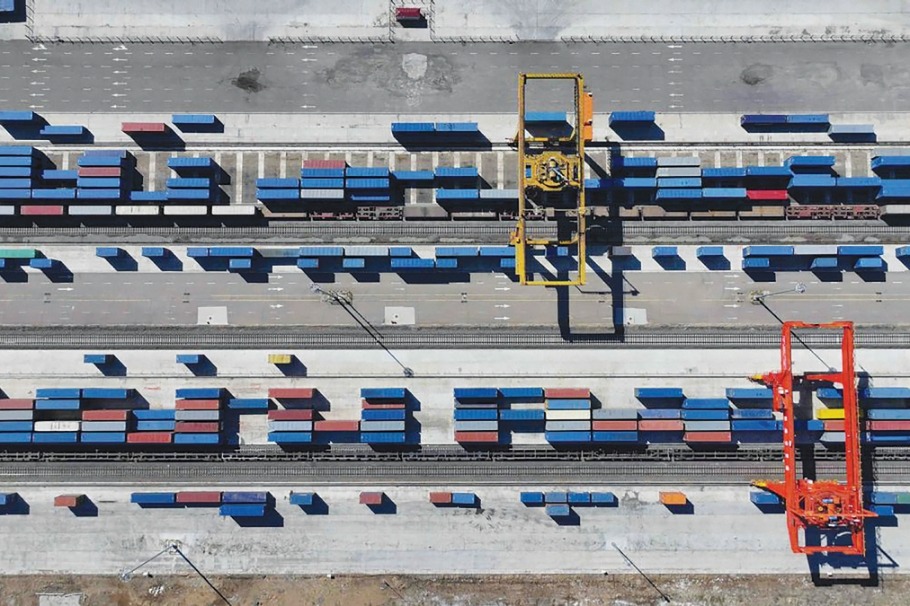Planning facilitates high-quality development


The fourth plenary session of the 20th Central Committee of the Communist Party of China, to be held from Oct 20 to 23, will outline suggestions for the overall plan for China's economic and social development during the 15th Five-Year Plan (2026-30) period.
The 14th Five-Year Plan (2021-25) period was the first five years in the new journey to achieve the second centenary goal of developing China into a great modern socialist country that is prosperous, strong, democratic, culturally advanced, harmonious and beautiful, and realize the rejuvenation of the Chinese nation by advancing Chinese modernization.
In the past five years, the world has undergone unprecedented changes. Domestically, China faced arduous and complex challenges in promoting reform and development. In the face of such challenges, the CPC Central Committee took charge of the situation, uniting and leading the entire Party and the Chinese people of all ethnic groups to forge ahead with determination.
In terms of economic scale, China's total GDP surpassed 134 trillion yuan ($18.39 trillion) in 2024, with its economy growing by more than 35 trillion yuan during the 14th Five-Year Plan period. Also, China's per capita GDP increased to $13,445 in 2024, making it an upper-middle-income country. For an economy of China's size, such steady overall growth is an outstanding achievement, especially given the complicated global challenges it faces.
Regionally, major national and coordinated development strategies have progressed well. Integrated development regions, including the Beijing-Tianjin-Hebei region, the Guangdong-Hong Kong-Macao Greater Bay Area and the Yangtze River Delta region, continued to drive growth, while the central and western regions gained momentum thanks to their latecomer advantage. In fact, the combined share of the central and western regions in China's total GDP rose to 42.9 percent.
The Xizang and Xinjiang Uygur autonomous regions, in particular, made some remarkable economic achievements. This year also marks the 70th anniversary of the establishment of the Xinjiang Uygur autonomous region, which has undergone tremendous changes over the past seven decades. Since the start of the 14th Five-Year Plan period, Xinjiang has made solid progress in advancing Chinese modernization. The region's GDP grew by 6.1 percent year-on-year to more than 2 trillion yuan in 2024, with the growth in its major economic indexes being among the highest in the country.
On the other hand, Xizang, designated as an autonomous region 60 years ago, has maintained social stability and realized healthy economic progress, with the region's GDP rising to 276.5 billion yuan in 2024, representing a 155-times growth over 1965 levels, measured in constant prices terms.
On the industrial front, China has revitalized and upgraded its traditional industries, while ensuring the rapid growth of its emerging sectors, thereby building a more optimized manufacturing structure. Between 2021 and 2024, the added value of high-tech manufacturing industries above designated size grew by an average of 9.2 percent a year, while investment to boost technological transformation in manufacturing increased by 8.4 percent a year. The new emerging sectors, comprising new industries, new business formats and new business models, have become a strong engine for high-quality growth, with their share of GDP rising to 18.01 percent in 2024.
Moreover, China has built the world's largest and most extensive telecommunications network. By the end of July, the country had built 4.59 million 5G base stations, with more than 100 million devices connected to major industrial internet platforms, facilitating the application of digital and smart technologies. It has also been applying more and more high-value patents in the advanced, smart and green sectors.
China has made all these remarkable achievements because of the Party's leadership, which shows that the CPC Central Committee's centralized and unified leadership is the fundamental guarantee for sound, high-quality economic development.
But how does the Party lead China's economic work? First, by strengthening the institutional framework of the Party's leadership in economic affairs. The CPC Central Committee has established a system of quarterly meetings to analyze and assess the economic situation, regularly discuss and plan major strategic issues, design top-level plans, coordinate overall development, implement plans and ensure unity of action across sectors, while the annual Central Economic Work Conference provides major strategies and policy priorities.
Second, the Party has established organizational mechanisms. The Central Financial and Economic Affairs Commission and its office provide key policy recommendations and ensure the implementation of major decisions. And corresponding commissions and departments have been set up in local Party committees, forming a sound organizational network to guarantee the implementation of national economic policies.
And third, the Party has set up a comprehensive national economic planning system. Every five years, it holds a plenary session to deliberate on suggestions for a new five-year plan for national, economic and social development, with each plan defining major strategies, projects and policies to ensure economic work advances in the right direction and helps realize long-term goals.
The fourth plenary session of the 20th CPC Central Committee will therefore be a very important meeting on how to strengthen and improve the Party's leadership over economic work, and facilitate high-quality development.
The author is a professor of economics at the Party School of the Communist Party of China Central Committee.
The views don't necessarily represent those of China Daily.
If you have a specific expertise, or would like to share your thought about our stories, then send us your writings at opinion@chinadaily.com.cn, and comment@chinadaily.com.cn.


































